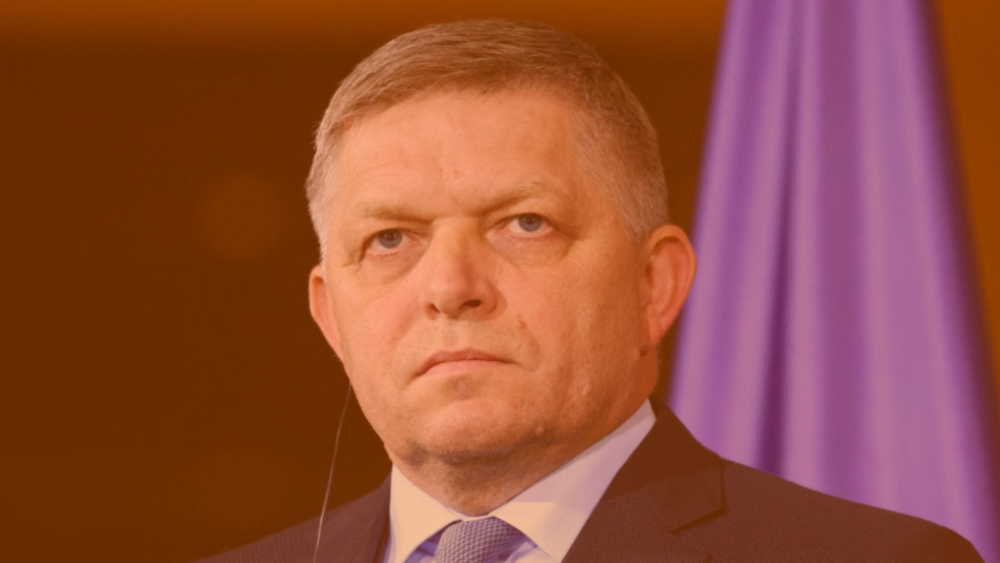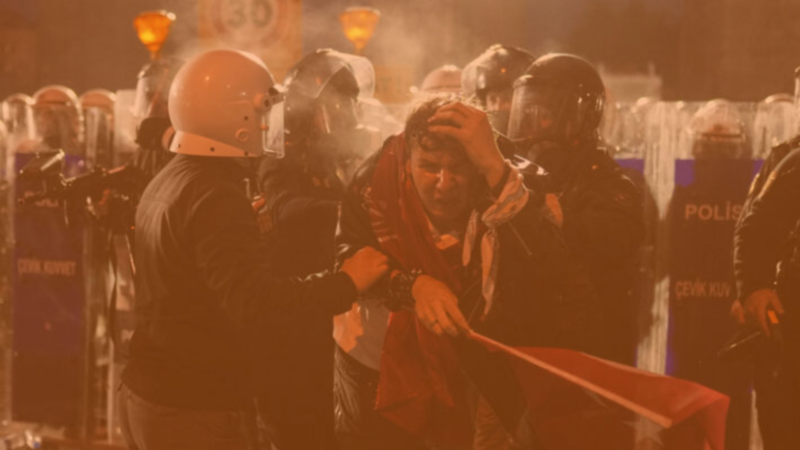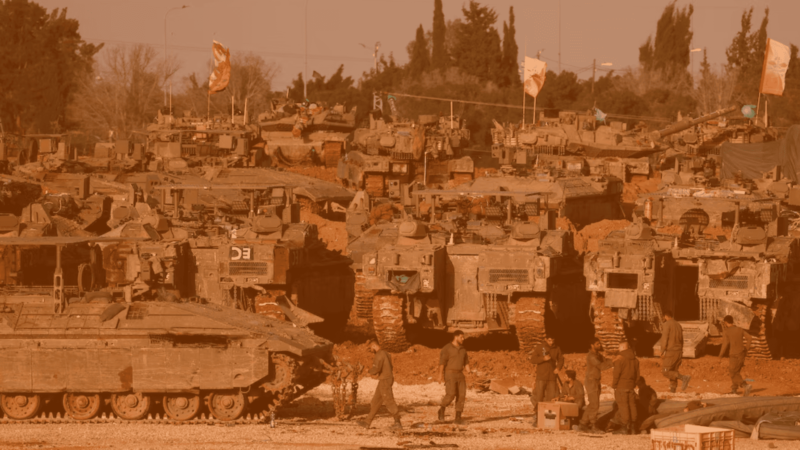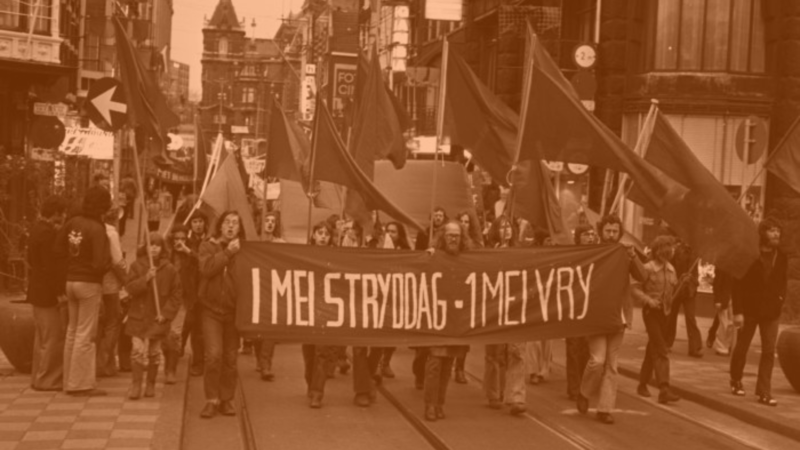Slovakian prime minister Robert Fico was shot on May 16 in an assassination attempt that has naturally garnered global headlines.
The current state of the prime minister was and still is very serious, after a 71-year-old man who works in a private security company and an amateur writer, and had previously participated in opposition protests, attempted to take the life of Fico with five gun shots.
He explained that his motivations were political and how he was unhappy with government policies and the lack of military support for Ukraine.
It appears this man is a product of a tense social situation and political crisis of capitalist democracy. As Jakub Bokes wrote for Jacobin: “He is the product of a long intensification of political conflict. But beneath Slovakia’s overheated politics there is a fundamental hollowness – and an impasse in the neoliberal order built in the 2000s.”
Slovakia, like many other post socialist countries, had undergone many political, economic, and social system changes after 1989. The ‘dark’ era of the governments of former prime minister Vladimír Mečiar, who was known by his autocratic tendencies and euroscepticism, turned to optimism after the democratic coalition led by Mikuláš Dzurinda in 1998 began to make reforms.
Many of these, especially in his second government from 2002, were barbarically neoliberal. This, together with the ongoing illegal war in Iraq supported by Dzurinda’s government, resulted in a clear victory of the left-wing party Smer (Social Democracy) led by Fico in the 2006 elections. Smer won the elections also in 2010, 2012, 2016 and 2023. Due to the lack of a coalition partner for Smer in 2010, the government was formed by centre-right parties. That period is considered by some analysts as the time when political discussion started to deteriorate. It also correlates with the arrival of a new generation of politicians in parliament.
One of the reasons Fico did not win the elections in 2020 was a sad episode in our modern history: the murder of investigative journalist Ján Kuciak and his fiancé in 2018, followed by massive street protests, calling for then internal affairs minister Robert Kaliňák and prime minister Fico to step down. They both did so in an orderly manner, Fico was replaced by his colleague Peter Pellegrini, and in two years (after the elections in 2020) Fico’s Smer party split in two – a more conservative wing remaining, and a group of 11 members of parliament led by Peter Pellegrini (now the newly elected president) promising a “new style” of politics quickly earned a wide popular support including less conservative voters who would never vote for Smer.
However, before the elections 2023, the public support for Fico and Smer recovered as a result of their clear anti-war rhetoric, which was in sharp contrast with the “common-sense” narrative in both commercial and public media.
The coalition formed in 2020 was led by an ultra-populist Igor Matovič, leader of centre-right “anti-corruption” semi-conservative movement formed only by four friends, outsourcing even the seats in the parliament to volunteering public figures. That coalition failed in many ways during the fight with COVID-19 and post pandemic crises including the war in Ukraine.
It was in a permanent political crisis, and it didn´t bring the anticorruption laws and the promised economic growth. Instead, they dug an unprecedented hole in Slovakia’s state budget, rendering the Slovak public finances to be the worst in the EU. This chaos has been strengthened by the change of three governments over three years. After his complete mismanagement, Matovič was replaced by his less impulsive friend Eduard Heger, and finally by a government appointed by president Zuzana Čaputová, in conflict with the constitution and without any political support, with a technocratic leader Ľudovít Ódor, who is now running for EU elections as the leading candidate for the same party, in which Čaputová started her career – despite her claims of naming a politically independent technocrat when Ódor took the office back in June 2023.
“The attack on Fico came at a time of increasing liberal frustration in Slovakia,” said Jakub Bokes. In the autumn of 2023, Fico returned to power following a campaign in which his party stood on a culturally conservative but economically left-wing nationalist platform. Frustration from the anti-Fico part of society strengthened after this year’s April presidential election, won by Fico’s coalition partner Peter Pellegrini.
Connections between the mainstream commercial and even public media and centre-right politicians are obvious. For example, the father of Michal Šimečka, leader of the strongest opposition party Progressive Slovakia was an editor-in-chief in the mainstream print medium SME and currently is a commentator in its spinoff Denník N.
The level of anti-Fico propaganda in the mainstream media has been so intense in the past decade that many people ceased reading it. It was simply plain disgusting. That led to rise of alternate media with a massive public support, possibly in a wider scope than in other countries – something that in general is not a positive development because these alternative media outlets often do not follow proper journalism principles.
The propaganda turned against those who seeded the hatred through their easy access to the mainstream, and it is likely that Fico would not get so much support had it not been so much anti-Fico propaganda. Many people’s votes were just votes against that sort of manipulation of the public opinion in our country. People were fed up with that. Voting in “protest” instead of voting for preferred values is still too common in our young democracy, with little to no established parties with clear profiles and significant voter support.
The vulgarisation of society is often attributed to Matovič who publicly lied about a corruption case connected to Fico many times and promised to bring him to justice. However, instead, the police and justice system under his government put innocent people into custody for extensive periods, some of whom, or their relatives, died due to the way they were treated.
Investigators used brutal methods on the edge of the rule of law or beyond. A war inside repressive security authorities kicked off as multiple police chiefs and heads of the main security service were accused and put into custody – one of them died under very suspicious circumstances before his trial. Many questionable practices were tolerated on all the political levels right up to president Čaputová, while Fico and company repeatedly claimed they were being prosecuted for their political opinions.
Fico’s camp also vulgarised the communication, blaming NGOs and journalists for political problems instead of confessing their own mistakes beyond symbolic acknowledgement of their errors. Meanwhile, the opposition protested against COVID restrictions, vaccinations and masks, which some claim contributed to the worsening of the health situation in Slovakia. Now in government, disappointed by the influence of the media propaganda, they started a transformation process of the national broadcaster RTVS, cancelled the Special Prosecutor’s Office, and increased pressure towards more nationalistic and more government-controlled policies.
In retaliation, Šimečka’s opposition raised alarms within EU institutions, threatening the inflow of EU funding to Slovakia, and took part in unprecedented attacks on regular parliamentary processes, while at the same time organising hysterical fearmongering anti-government protests in the streets about the existential danger caused by Fico policies to Slovakia.
Seeing the recent developments from this perspective – the violent act was a desperate move resulting from the situation painted by the Fico haters’ propaganda: violence is the last refuge of the incompetent. They failed with the propaganda. It had an exactly opposite effect: the Fico government re-election followed by his former comrade Pellegrini elected as new president by a popular vote. In their deep desperation from these developments, an irrational action has been planned and executed. The investigators are now working with a version that it was possibly more than an isolated lone-wolf action. However, it is just another incident in a mysterious series: who were the true attackers of Nord stream, who ordered the murder of Kuciak, and was the attack on Fico just an isolated act of a sick individual? We will probably never know.
Even though there are (mostly insincere) calls for calming down of the situation from all sides, opposition and their supporters among the public completely fail to recognise the point of view described above. That, as a result, infuriates Fico’s coalition and prevents the tensions from cooling down to any significant degree, adding further obstacles when thinking about future developments.
Do you want to be informed of DiEM25's actions? Sign up here















